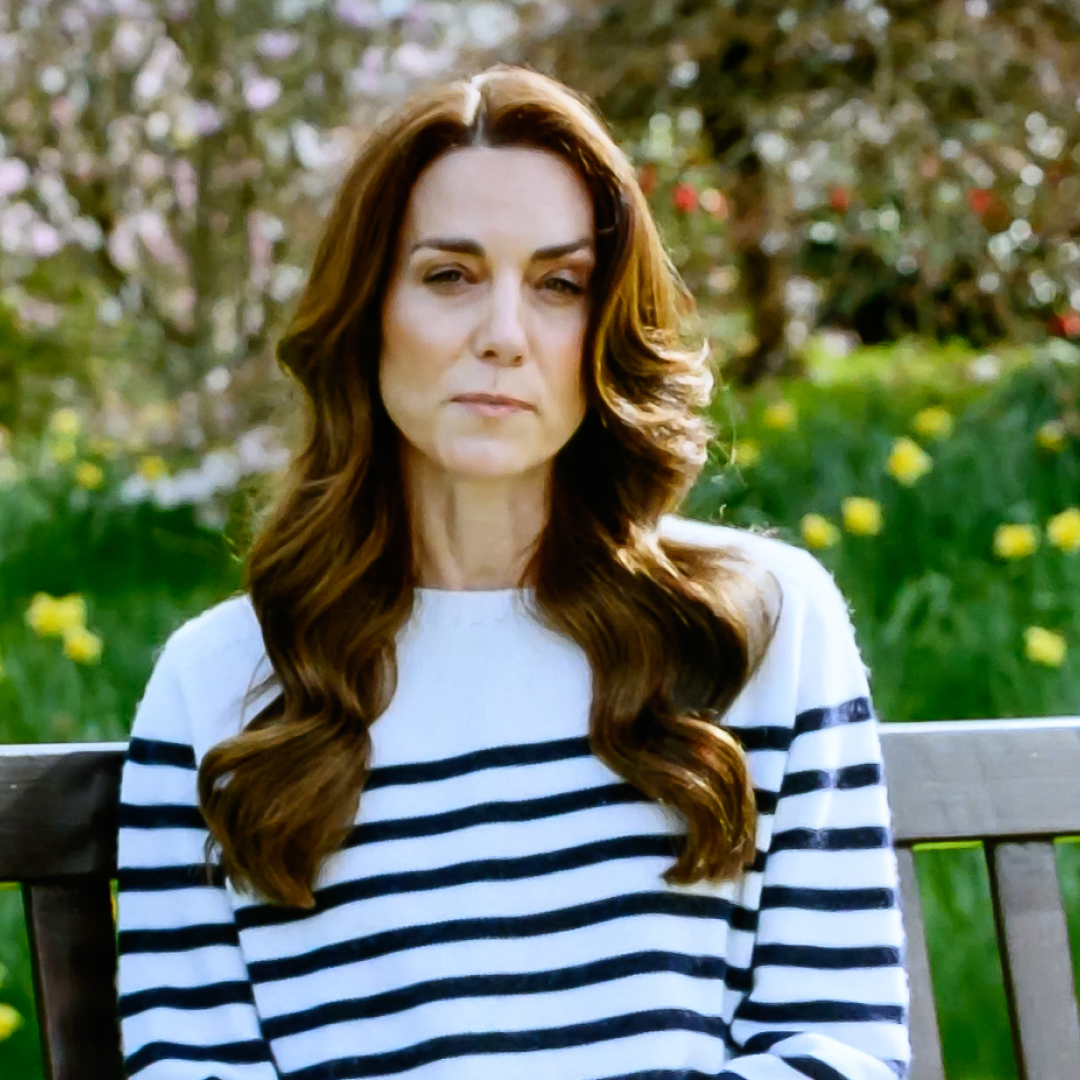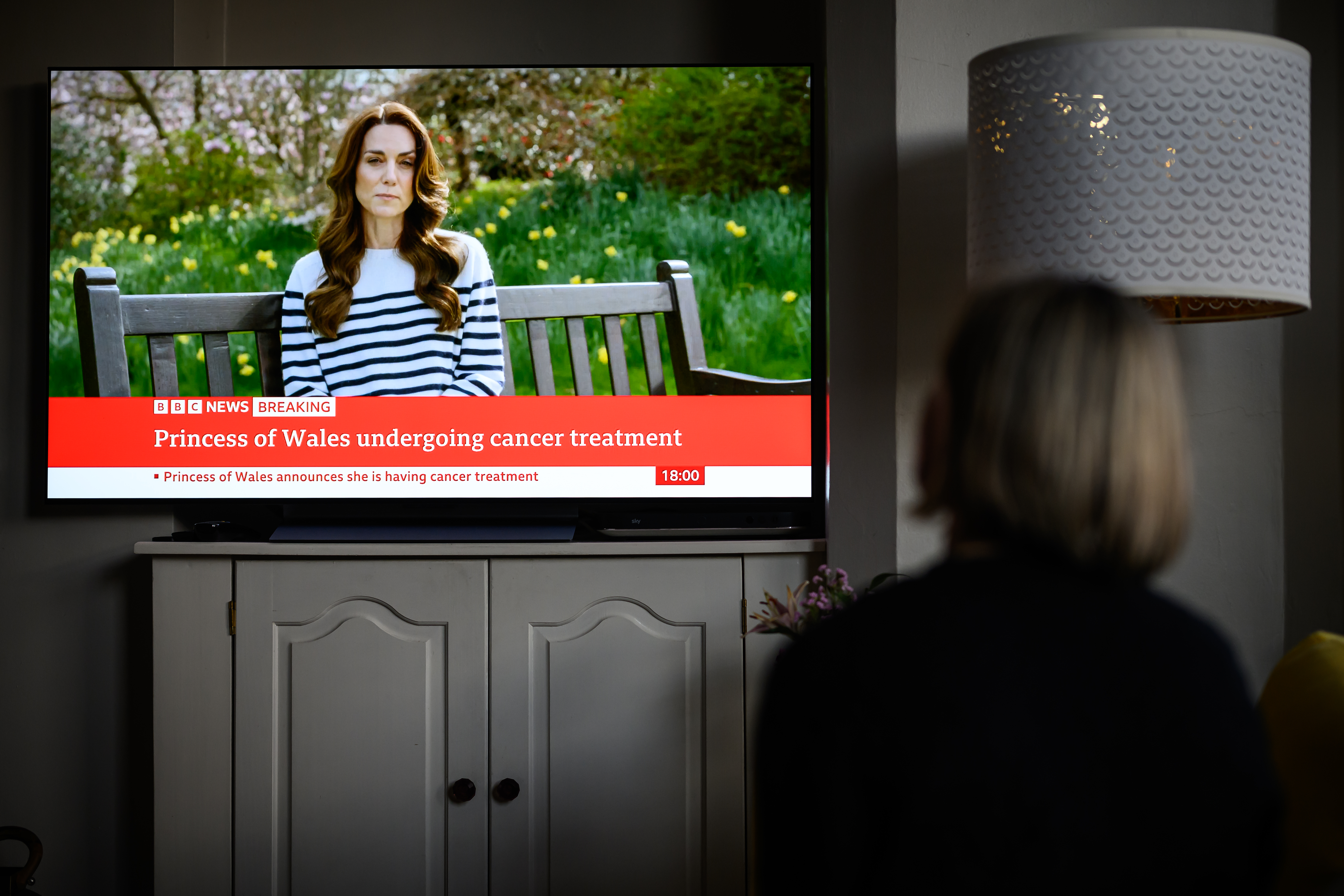
Getty has added an editor's note to Kate Middleton's video announcing her cancer diagnosis and treatment, as well as an explanation as to why the note was necessary.
On Monday, the media agency added the following note to their version of the Princess of Wales' video: "This handout clip was provided by a third-party organization and may not adhere to Getty Images’ editorial policy.”
The addendum sparked immediate speculation online, and at a time when the royal family has been dealing with a slew of online conspiracy theories regarding the princess after Kensington Palace released what was later found to be a digitally altered photograph of Middleton in March.
"Of course the Kate Middleton video was fake: Getty adds addendum that suggests video was not legitimate," one person wrote on X, formerly known as Twitter. "She's not physically or mentally able (or present) to put forward a SINGLE LEGITIMATE proof of life. Kensington Palace stumbling around in the dark."
"The fact that now Getty puts an editor's note when they share Kate Middleton's video proves how much Kensington Palace has become untrusted," another X user wrote. "The Royal Family can control their media and so called journalists, but everyone else is watching and is not playing."
"How embarrassing for the royal family," another user posted. "Kate Middleton’s cancer announcement has had a disclaimer added by Getty images saying it might not meet editorial standards. After releasing fake/edited images, the palace is no longer a trustworthy source of information."
Turns out, there is a super simple explanation for Getty adding the note. According to the media agency itself, the video was "flagged as standard practice for content handed to it by third-party organizations—in this case Kensington Palace," The Independent reports.
"Getty Images has confirmed nothing," one X user explained online to the less cooler heads among us. "This type of disclaimer is typically included with handout images or content provided by third parties, such as government agencies, organizations, or PR firms. It's essentially a boilerplate CYA clause."

Recently, new reports revealed that online disinformation, misinformation and conspiracy theories regarding Princess Kate and her health were linked to a Russian disinformation campaign.
"It’s not as though these Russia-linked accounts were driving the story; they were jumping on it," Innes told NBC News. "It was already being framed in conspiracy terms, so foreign actors don’t need to set that frame—that’s already there to exploit."
Karen Douglas, a professor of social psychology at the University of Kent in the U.K., previously told Marie Claire that Middleton's planned abdominal surgery and hospitalization in January—in addition to Kensington Palace releasing a digitally altered image of Middleton and her children—was "a perfect storm for conspiracy theories."
"A famous person who seems to have gone missing creating uncertainty and the feeling that something terrible has happened," she added. "(People) clearly (thought) that something isn't right and the truth (was) being hidden from them."







